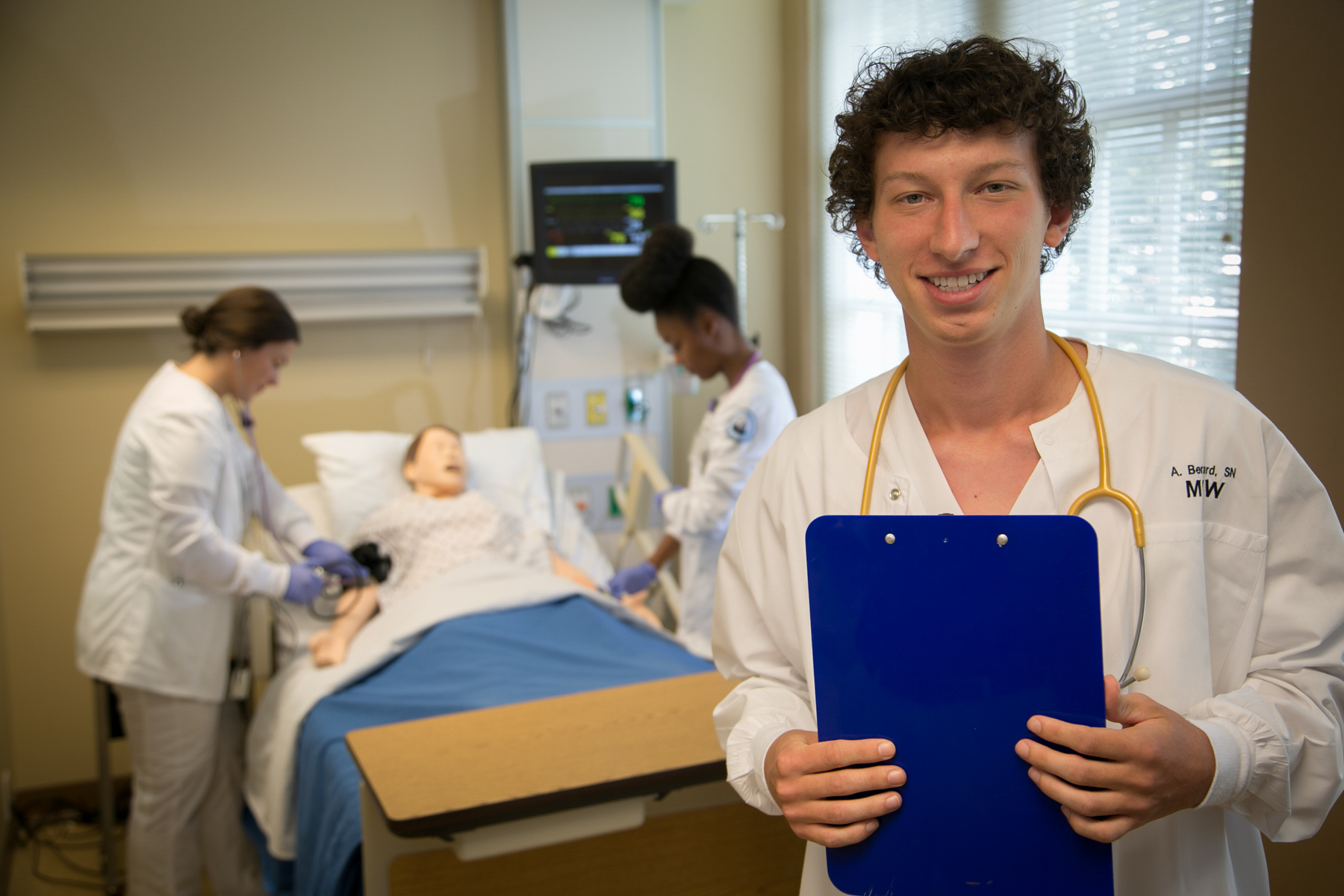The healthcare industry offers a wide range of career opportunities, many of which require specialized education and training. With its diverse array of degrees, certifications, and professional pathways, the healthcare sector can be overwhelming for those interested in pursuing a career in this field. Whether you are looking to work directly with patients or in administrative, research, or technological roles, understanding the different healthcare degrees available can help you make an informed decision about your future.
In this article, we will explore various healthcare degrees, from associate degrees to doctorate-level programs.
1. Associate Degrees in Healthcare
Associate degrees are typically the starting point for many individuals entering the healthcare field. These programs generally take about two years to complete and provide foundational knowledge and skills in various healthcare disciplines.
Associate of Science in Nursing (ASN)
One of the most common healthcare associate degrees is the Associate of Science in Nursing (ASN), which prepares graduates to work as registered nurses (RNs). ASN programs cover anatomy, physiology, pharmacology, patient care, and other essential nursing practices.
After completing the degree, graduates must pass the NCLEX-RN (National Council Licensure Examination for Registered Nurses) to become licensed.
Associate Degree in Medical Assisting
For individuals interested in supporting healthcare teams through administrative and clinical duties, an Associate Degree in Medical Assisting can be a solid choice. Medical assistants perform tasks such as taking vital signs, preparing patients for exams, handling administrative tasks, and assisting physicians in various ways.
These programs typically take two years to complete and may offer certifications upon graduation, such as the Certified Medical Assistant (CMA) credential.
Associate of Science in Health Information Technology
Healthcare technology and information management are crucial for efficient healthcare delivery. An Associate Degree in Health Information Technology prepares students to manage electronic health records (EHRs), billing, coding, and healthcare data analysis.
Graduates of this program can pursue positions as health information technicians, medical coders, or health data analysts, working in hospitals, clinics, or other healthcare facilities.
2. Bachelor’s Degrees in Healthcare

A bachelor’s degree in healthcare opens up a broader range of career opportunities compared to an associate degree. Bachelor’s programs generally require four years of study and provide students with in-depth knowledge of healthcare systems, patient care, and medical technologies.
Bachelor of Science in Nursing (BSN)
A Bachelor of Science in Nursing (BSN) is a popular choice for those aiming to advance their nursing careers. While some individuals may start with an ASN, many choose to pursue a BSN to open doors for higher-paying positions and specialized nursing roles.
A BSN program includes advanced coursework in patient care, leadership, research, and community health, with the potential for roles in management, education, or specialized care.
A BSN is often required for nurses who wish to pursue advanced practice roles like nurse practitioners (NPs) or nurse anesthetists (CRNAs), making it an essential step for career progression.
Bachelor of Science in Healthcare Administration
For individuals interested in the business side of healthcare, a Bachelor of Science in Healthcare Administration can be an excellent choice. This program focuses on healthcare management, hospital operations, finance, and policy. Graduates can take on roles such as health services managers, clinical coordinators, and healthcare executives, overseeing departments and ensuring that healthcare facilities operate smoothly and efficiently.
Bachelor of Science in Public Health
A Bachelor of Science in Public Health equips students with the skills necessary to improve health outcomes at a community or population level. The program includes coursework in epidemiology, health policy, environmental health, and social determinants of health.
Public health graduates can pursue careers as health educators, community health workers, or public health analysts, focusing on disease prevention, health promotion, and addressing health disparities.
3. Master’s Degrees in Healthcare
Master’s degrees in healthcare allow professionals to specialize further and assume leadership, research, or teaching positions. These programs typically take two to three years to complete and are ideal for individuals seeking to enhance their expertise in specific areas of healthcare.
Master of Science in Nursing (MSN)
For registered nurses (RNs) looking to advance in their careers, a Master of Science in Nursing (MSN) is a common option. MSN programs prepare nurses for specialized roles such as nurse practitioners (NPs), nurse anesthetists (CRNAs), nurse midwives, or nurse educators.
Depending on the specialization chosen, MSN graduates can provide primary care, anesthesia services, or teach aspiring nurses in academic settings.
Master of Healthcare Administration (MHA)
The Master of Healthcare Administration (MHA) is designed for professionals seeking to move into executive or leadership positions within healthcare organizations. MHA programs focus on the management of healthcare systems, policies, and finances, preparing graduates to take on roles such as hospital administrators, healthcare consultants, or medical office managers.
These positions require strong leadership skills, knowledge of healthcare regulations, and an understanding of healthcare economics.
Master of Public Health (MPH)
The Master of Public Health (MPH) is a versatile degree for those interested in promoting health at a population level. MPH programs provide advanced training in public health practice, research, policy development, and healthcare management.
Graduates of MPH programs can work in government agencies, nonprofit organizations, research institutions, or international health organizations, leading efforts to improve public health through preventive care, policy advocacy, and health education.
4. Doctoral Degrees in Healthcare

Doctoral degrees in healthcare are the highest level of education and are designed for those who wish to engage in advanced clinical practice, research, or leadership roles. Doctoral programs often take several years to complete and typically require students to engage in original research, clinical rotations, and specialized training.
Doctor of Physical Therapy (DPT)
One of the most popular doctoral programs in healthcare is the Doctorate in Physical Therapy (DPT). Physical therapists (PTs) play a critical role in rehabilitating patients who have experienced injuries, surgeries, or physical disabilities. DPT programs are typically three years in length and include extensive clinical training, coursework in biomechanics, anatomy, physiology, and therapeutic techniques, and hands-on experience in patient care.
After earning a DPT, graduates must pass a national licensure exam to practice as physical therapists. Physical therapists work in a variety of settings, including hospitals, outpatient clinics, rehabilitation centers, sports teams, and schools. They help patients improve mobility, manage pain, and regain independence through personalized physical therapy plans.
Doctor of Medicine (MD) or Doctor of Osteopathic Medicine (DO)
For those interested in becoming medical doctors, a Doctor of Medicine (MD) or Doctor of Osteopathic Medicine (DO) is the pathway to a career in clinical medicine. MDs and DOs attend medical school after completing an undergraduate degree and must undergo rigorous training, including clinical rotations and internships, before becoming licensed physicians.
These professionals diagnose and treat illnesses, prescribe medications, and provide overall medical care to patients.
While both MDs and DOs practice medicine, DOs are trained to focus on the musculoskeletal system and use osteopathic manipulative treatment (OMT) to diagnose and treat conditions. Both degrees require completion of a residency program and board certification to practice in a specific medical specialty.
Doctor of Nursing Practice (DNP)
The Doctor of Nursing Practice (DNP) is a terminal degree for nurses who wish to assume leadership roles in clinical practice, education, or policy development.
DNP programs prepare nurses to provide high-level care in areas such as nurse anesthesia, nurse practitioner services, or clinical leadership. Graduates can take on roles such as clinical nurse specialists, nurse practitioners, or healthcare policy experts.
5. Conclusion
The healthcare industry offers an array of career paths and educational opportunities for individuals with a passion for improving health and making a positive impact on their communities.
Whether you are drawn to patient care, administration, research, or health policy, there is a healthcare degree that aligns with your interests and goals.
From associate degrees that provide foundational skills to doctoral programs that allow for specialized practice and leadership roles, the healthcare field is rich with opportunities for professional growth. Ultimately, your decision to pursue a healthcare degree should align with your long-term career goals and interests.
By carefully considering the options available, you can choose the path that best suits your ambitions and set yourself up for a fulfilling career in this dynamic and vital industry.


















